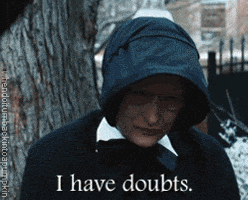Whoever they are, they say, “You can’t teach an old dog new tricks.”
Well, apparently from this old dog, I can attest that you can teach yourself
more than a few new tricks.
My travels have taken me from in class teaching, to
hybrid teaching, to online teaching and to various iterations of all three. My
most important discovery is that changing the way I present a course, whether
it be in class or online is changing the way I teach.
Teaching in class is becoming a new experience
because of my online teaching. Putting my in class course into a blender on
high and totally creating a new and unique online form of it is transforming my
own way of thinking. Dare I say I have become a better teacher?
As a long-term college teacher, I’ve always
been interested in technology. I had websites to share my notes long before my
college introduced a learning management system. Those old websites may have
begun with a few embarrassing blinky gifs, but the content was sound and students
always found them helpful and blinking gifs have even come back in vogue.
Learning Management Systems
Learning Management Systems
When we moved into learning management
systems like WebCT and Blackboard, it wasn’t long before I was piloting online
on-campus testing and then creating my first hybrid course- Strategies for
Student Success in 2001. The course was a mandatory half credit course for all
Business and Creative Arts students meant to help give new students some of the
basic skills needed for success and to help them connect to the college. It was
all about the R word- Retention and the P word- Persistence. The course was
half in class and half online and the online part was self-directed.
We Made it to the Newspaper
The course managed to get a little media attention when the Toronto Star wrote a small story about our course just after 9/11. I was quoted at the time as saying, “I think most institutions are realizing that one of the reasons that a lot of students leave is because they do not feel connected and one of the main goals of the student success course is to make them feel that they belong, they are not alone, and that we care about them.” Looking back, I find it interesting that we were using what was considered a disconnected form of learning to help students feel like they belonged.
The course managed to get a little media attention when the Toronto Star wrote a small story about our course just after 9/11. I was quoted at the time as saying, “I think most institutions are realizing that one of the reasons that a lot of students leave is because they do not feel connected and one of the main goals of the student success course is to make them feel that they belong, they are not alone, and that we care about them.” Looking back, I find it interesting that we were using what was considered a disconnected form of learning to help students feel like they belonged.
The online modules
featured a friendly talkative tone that discussed basic college survival skills
and some specific areas in the college there to help. In many ways the course accomplished
its goal. Looking back, I think it was a bit ahead of its time and
underappreciated.
Getting my "Me" Online
The course was the beginning of me trying to figure out how to transfer my in class personality and content into an online environment. I learned a lot about creating online interactions and reformulating content in unique ways, but somehow at that time it wasn’t spilling over into my in class experience. I still had my online notes posted and did most things in class a similar way that I always had.
The course was the beginning of me trying to figure out how to transfer my in class personality and content into an online environment. I learned a lot about creating online interactions and reformulating content in unique ways, but somehow at that time it wasn’t spilling over into my in class experience. I still had my online notes posted and did most things in class a similar way that I always had.
Later on when I began
helping others create online courses, I was still learning and evolving but I
wouldn’t say it was really changing the way I taught my in class courses. That
was probably because the content I was working with to help put online was not
my own. It’s different when you rethink others work compared to your own.
It's Not Easy!
When I created an online version of one of my in class courses Visual Communications, that’s when things started to change. If anyone ever tells you that if you have been teaching a course in class for years that it will be easy to put online, I’d probably tell you if it was easy maybe it’s not a great course. There were all sorts of emotions and time and effort putting Visual Communications online, but in the end there has been a great evolution.
When I created an online version of one of my in class courses Visual Communications, that’s when things started to change. If anyone ever tells you that if you have been teaching a course in class for years that it will be easy to put online, I’d probably tell you if it was easy maybe it’s not a great course. There were all sorts of emotions and time and effort putting Visual Communications online, but in the end there has been a great evolution.
The Big Blender!
Like I mentioned earlier I needed a really big high-powered blender. Things went in many times again and again and came out very different. Everything needed to be rethought. Because I am the type who loves technology and am comfortable learning new tools, I was able to find all sorts of different ways to present different ideas.
Synergy is Real
Having taught the course in class for years, I did know the parts that students had difficulty with, so I was able to focus on creating interactive elements that related to those concepts. When I did that, something clicked and I realized that now these little interactive elements could be used in my in class course as well. My in class courses had enhanced resources.
Having taught the course in class for years, I did know the parts that students had difficulty with, so I was able to focus on creating interactive elements that related to those concepts. When I did that, something clicked and I realized that now these little interactive elements could be used in my in class course as well. My in class courses had enhanced resources.
Visuals, Visuals, Visuals
Because that online course was Visual Communication, I soon realized how important visuals were to presenting everything in the course. Soon not only did my content have visuals to help illustrate things but relevant visuals were everywhere. For example, a section on how grades were allocated used an accompanying visual graph. My welcome message and announcements would also have illustrative images.
Because that online course was Visual Communication, I soon realized how important visuals were to presenting everything in the course. Soon not only did my content have visuals to help illustrate things but relevant visuals were everywhere. For example, a section on how grades were allocated used an accompanying visual graph. My welcome message and announcements would also have illustrative images.
Finding My Voice and Sharing It
My writing style tried to use the similar talkative style I used in class and though it seemed lively, I still felt my personality was not quite there. That led me to create voice-overs for every content page that students could click on if they wished to hear me. This has proved to be the most mentioned point students make when talking about the class. They love that they can be on the TTC or GO train listening to content pages. They say they feel they know me.
My writing style tried to use the similar talkative style I used in class and though it seemed lively, I still felt my personality was not quite there. That led me to create voice-overs for every content page that students could click on if they wished to hear me. This has proved to be the most mentioned point students make when talking about the class. They love that they can be on the TTC or GO train listening to content pages. They say they feel they know me.
Evaluating Online Results vs In Class Results
When I created this online course, I wanted to keep the course as similar as possible assessment-wise so that I would be able to compare how in class students do compared to online ones. I kept the exact same online tests in both and only had to tweak the other assessments to keep them somewhat in line.
When I created this online course, I wanted to keep the course as similar as possible assessment-wise so that I would be able to compare how in class students do compared to online ones. I kept the exact same online tests in both and only had to tweak the other assessments to keep them somewhat in line.
The Big Why
After
a few semesters running both in class and online versions, it seemed that the
online students were outperforming my in class courses. Consistently the online
class ended up with about a 5% higher class average. There is something very
satisfying about this but something a little sad. Apparently I am better
online than in class. I wondered why.Let's Do it Again
I put my second in class course Psychology of Consumer Behaviour online and followed through the same long process rethinking and recreating online. I really benefited from the groundwork I had laid with the other course. Again all the great new interactive elements I made for online were added to my in class course and my in class course got better.
Doing Something Right and Something Wrong
Keeping this online
course again consistent with my in class course, I was able to get the same statistics
again. Students online were consistently outperforming in class courses. This
could partly be explained by the fact that the courses were offered on
different campuses. The online class mostly ran at a campus that tended to get
slightly higher grades. I could see what I was doing right but wondered what I
was doing wrong.
Light Bulbs Flashing
Last year as I was
working on my online class checking in to see who had not logged on to the
course so I could send them an email to ask if they were waiting for an
exemption, or had some problem, another light bulb came on. Why am I only doing
this for my online class? Why am I sending an announcement to my online class
mentioning the last date to withdraw but not doing the same in my in class
course?
My students and I in the
online class were introducing ourselves in the online class in an opening
discussion forum and really finding out the diversity and creativity of our
class, but what did I or my students know about each other after week 1 in the
in class course?
Doubts
These little things haunted me, maybe I wasn’t as good in person and I needed a bit of change. I decided to include some of these same things in my in class course. I created a bonus welcome forum for my in class course where students could get a bonus mark for doing a somewhat similar task that my online students do. A lot of students really took to this idea and we learned all sorts of interesting things about each other. These little things really helped make my in class courses better, but I didn’t notice any change in grades. Then of course we had the College Strike interrupt one semester and the following semester was compressed. My statistics showed the effects of these events on student grades.
These little things haunted me, maybe I wasn’t as good in person and I needed a bit of change. I decided to include some of these same things in my in class course. I created a bonus welcome forum for my in class course where students could get a bonus mark for doing a somewhat similar task that my online students do. A lot of students really took to this idea and we learned all sorts of interesting things about each other. These little things really helped make my in class courses better, but I didn’t notice any change in grades. Then of course we had the College Strike interrupt one semester and the following semester was compressed. My statistics showed the effects of these events on student grades.
Let's Take it From the Top!
So here we were in September 2018 in a fresh new semester that would be “normal” and I had my chance to try to equalize the playing field. As I was opening my online classes a few days early, and writing my welcome announcement, it occurred to me that I was advantaging my online students. Why shouldn’t I do the same for my in class course?
Well, Welcome to You Too!
So here we were in September 2018 in a fresh new semester that would be “normal” and I had my chance to try to equalize the playing field. As I was opening my online classes a few days early, and writing my welcome announcement, it occurred to me that I was advantaging my online students. Why shouldn’t I do the same for my in class course?
Well, Welcome to You Too!
One of the things that happens first week is a lot of in and out of classes. Students are sampling. Online they can log on and see everything. If I wrote a welcome announcement for my in class students before class and told them a bit about the course, the assessments and what we would be doing the first class, maybe I could allow them to decide before class if this course was for them.
So there it began. I didn’t really think anything of it until I suddenly got an email from one of my in class students two days before the first class telling me how excited he was to learn about the class and the subject. Well, that was odd.
I found a very friendly
group when I walked into class. Did my welcome message have anything to do with
it? It was midway through the first class and during break one of my students
came up to me and said, “Thank you for sending that email announcement about
the course and first class. It really helped me. No one ever does that. I can
tell you really care about students.” I was touched and kind of shocked that
something so simple had made a difference.
I decided then that I would send a weekly wrap-up announcement/email after each class. My announcement basically thanked everyone for showing up and participating that week, the concepts we covered, the interactive things we may have done in class, a reminder to do the practice test for the week and then a bit about what was happening or due next week. Lots of students mentioned in class how helpful this was. I wondered, would it really make a difference?
There's Something Happening Here
Well I cannot be sure,
but for the first time ever my in class course has outperformed my online
course on the first test. The campus that generally has the highest grades has
been surpassed by the campus that usually has lower grades. The difference
in grades is only about 3%, but if we consider that generally campus X usually
has 5% lower average than campus Y, that’s quite a difference.
Maybe it is an anomaly…..or
maybe I am learning and still evolving. It seems this old dog has a new bark and a few new tricks!











No comments:
Post a Comment